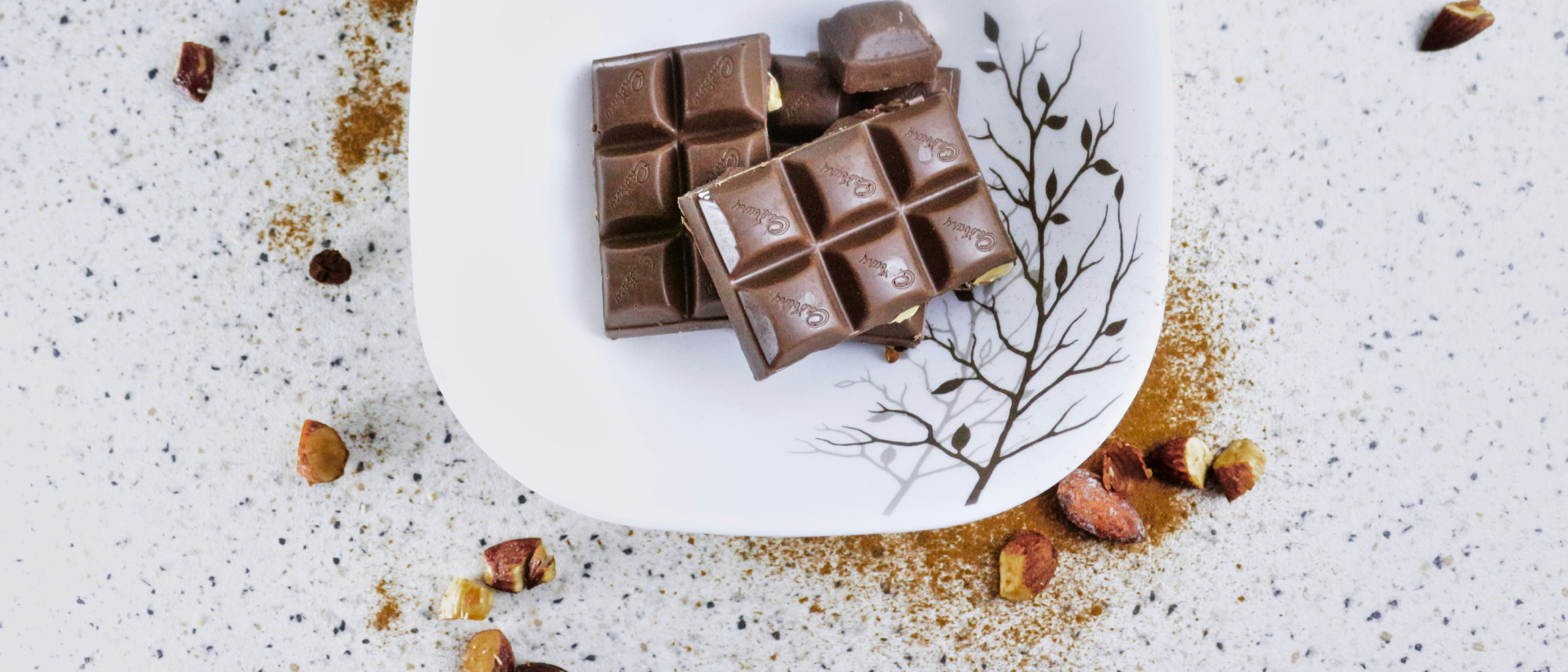What Happens to Your Body When You Eat Chocolate Every Day
Posted on May 15, 2025 • 3 min read • 564 wordsDiscover the daily impact of chocolate on your body, from cardiovascular benefits to cognitive boosts and potential risks.

Chocolate, often called “food of the gods,” has been a beloved treat for centuries. But what happens when you make it a daily habit? From potential heart health benefits to subtle cognitive boosts—and yes, some caveats—let’s explore how your body responds when chocolate becomes a part of your daily routine.
1. Your Cardiovascular System: A Sweet Surprise
You might be surprised to learn that daily chocolate consumption, especially dark chocolate, could positively impact your heart. A systematic review and meta-analysis of 31 studies found that regular intake of cocoa-based products (including dark chocolate) for at least two weeks was linked to reduced systolic and diastolic blood pressure in both people with normal and elevated blood pressure [1] . The magic here lies in cocoa’s flavanols, plant compounds with antioxidant and anti-inflammatory properties that help relax blood vessels and improve blood flow.
2. Your Brain: A Cognitive Lift
Ever reach for chocolate when you need a mental pick-me-up? There’s science behind that. A randomized trial involving 18 healthy young adults showed that daily dark chocolate consumption for 30 days increased plasma levels of nerve growth factor (NGF)—a protein crucial for maintaining and repairing neurons—and enhanced performance in cognitive tests, such as the Stroop color word test [2] . Even three weeks after stopping intake, the cognitive benefits persisted, suggesting long-term effects of consistent consumption.
3. May Increase Your Risk for High Cholesterol
While chocolate consumption offers some potential health benefits, it also carries possible health risks. Specifically, white and milk chocolate contain significant amounts of saturated fat and added sugars. According to the Centers for Disease Control and Prevention (CDC), excessive intake of these is linked to high cholesterol levels and an elevated risk of cardiovascular disease. Illustrating this, a standard 1.5-ounce milk chocolate bar contains approximately 22 grams of added sugars and 8 grams of saturated fat, while an equivalent white chocolate bar has about 25 grams of added sugars and 16.5 grams of saturated fat.
4. Caffeine Intake: A Double-Edged Sword
While chocolate’s mood-boosting effects are well-known, it’s also a source of caffeine—especially for younger consumers. A study of New Zealand adolescents found that chocolate ranked among the top sources of daily caffeine intake, with 21.2% of participants exceeding the European Food Safety Authority’s recommended safe level (3 mg/kg/day) [3] . For you, this means being mindful of total caffeine from all sources (coffee, tea, energy drinks) to avoid jitters, sleep disturbances, or overstimulation.
5. Sugar and Processing: The Fine Print
Not all chocolates are created equal. Many commercial chocolates are high in added sugars and low in cocoa content, which can offset their health benefits. A review of chocolate’s role in health noted that while dark chocolate (with ≥70% cocoa) retains most of cocoa’s bioactive compounds, milk chocolate or chocolate spreads may contribute to excess sugar intake, linked to weight gain and metabolic issues if consumed excessively [4] . For you, choosing high-cocoa, low-sugar varieties is key to reaping benefits without the downsides.
Conclusion: Moderation and Choice Matter
Eating chocolate daily can be a delightful part of a healthy diet—if you choose wisely. Dark chocolate, rich in cocoa flavanols, may support heart health and cognitive function, while being mindful of caffeine and sugar intake helps avoid potential pitfalls. So go ahead, savor that square of dark chocolate each day—your body might just thank you for it.
Sources
-
Amoah, Isaac. Effect of Cocoa Beverage and Dark Chocolate Consumption on Blood Pressure in Those with Normal and Elevated Blood Pressure: A Systematic Review and Meta-Analysis. Foods.(2022). ↩︎
-
Sumiyoshi, Eri. Sub-Chronic Consumption of Dark Chocolate Enhances Cognitive Function and Releases Nerve Growth Factors: A Parallel-Group Randomized Trial. Nutrients.(2019). ↩︎
-
Turner, Sophie. Secondary School Students and Caffeine: Consumption Habits, Motivations, and Experiences. Nutrients.(2023). ↩︎
-
Montagna, Maria Teresa. Chocolate, 'Food of the Gods': History, Science, and Human Health. International Journal of Environmental Research and Public Health.(2019). ↩︎